
Frank Dunklee Currier was an American politician and a U.S. Representative from New Hampshire.
Frederick Myron Colby was an American writer, educator and politician.
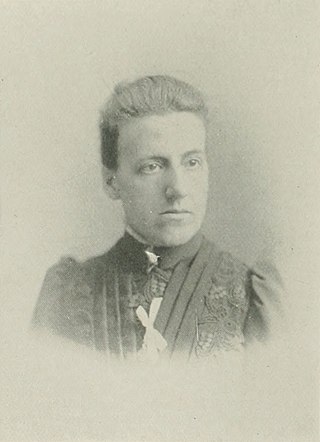
Irene Sarah Clark Durrell was an American educator from New Hampshire. She served as preceptress of the New Hampshire Conference Seminary and Female College, now known as Tilton School.

Mary R. P. Hatch was an American author from New Hampshire. She contributed stories to the Transcript, Mountaineer, Fireside Companion, Chicago Ledger, Frank Leslie's Illustrated Newspaper, Springfield Republican, Granite Monthly, The Writer, and several magazines including the Portland Transcript, The Saturday Evening Post, Peterson's Magazine, as well as other periodicals. Her novels included The Strange Disappearance of Eugene Comstocks, The Bank Tragedy: A Novel, and The Missing Man, among others.

Clara Augusta Jones Trask was a popular 19th-century American writer from New Hampshire, with several hundred titles to her credit. A dime novelist, she wrote in a variety of genres and styles. In the 1895 edition of The Granite Monthly it was said that, "It is doubtful if any woman contributor to current periodicals has received larger returns for her work than has Mrs. Clara Augusta Trask, with the exception of those who own royalties on plays."

H. Maria George Colby was an American writer, newspaper editor, and social leader of the long nineteenth century. Her articles appeared in various publications, including the Housewife, Housekeeper, Housekeeper's Weekly, Christian at Work, Demorest's Monthly Magazine, Arthur's Lady's Home Magazine, The Youth's Companion, the Congregationalist, the Portland Transcript, Ladles' World, Good Cheer, The Philadelphia Press, the Chicago Ledger, the Golden Rule, the Household, Good Housekeeping and St. Nicholas Magazine. She served as fashion editor of the Household. Though she used various pen names, including "H. M. G." and "Clinton Montague", her best known literary name was her maiden name, "H. Maria George".

Armenia S. White was an American suffragist, philanthropist, and social reformer. She was the first president of the New Hampshire Woman's Suffrage Association, and was well known for her many years, along with her husband, Nathaniel White, of Concord, New Hampshire, in works of philanthropy and reform.

Louisa Dwight Benton was a 19th-century American linguist, translator, and letter writer. She became physically disabled from rheumatism, unable to walk, and lost almost the entire use of her hands. She learned to read Italian, Spanish, German, Greek, and Russian without any instruction. Then she took up Volapük, and became well known as a Volapük scholar. She carried on correspondence with several linguists in Europe and associations for the spreading of this language. Benton died in 1895.
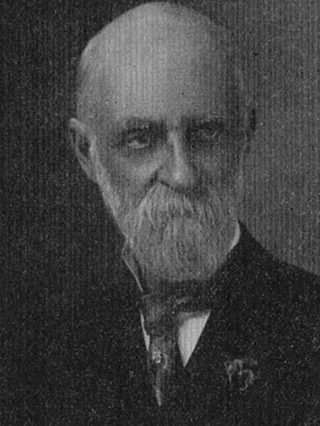
Henry Harrison Metcalf, LL.D., was an editor, journalist, historian, politician, and author from New Hampshire.

Mary Elizabeth Perley was an American writer, professor, and poet. She taught at Tilden Ladies' Seminary, New Hampshire Conference Seminary, Tabor College, Fargo College, and the University of North Dakota. In addition to two books, she wrote poems, newspaper articles, short stories, and plays.

Katherine Call Simonds was an American musician, dramatic soprano, composer, songwriter, and social reformer. She gave entire concert programs of her own songs, conducted many choruses and did much general musical work. She was widely known by the songs she wrote and the unusual concerts she gave, her programs consisting entirely of works written by her, both words and music.

Lilian Carpenter Streeter was an American social reformer, organizational founder, clubwoman, and author. She founded the Concord Woman's Club, and the New Hampshire Federation of Woman's Clubs. Having lived in Concord, New Hampshire from 1877 till her death, she was active in every social, educational, and philanthropic movement that was brought to her notice, and her actions commanded the support and cooperation of other women. At the National Conference of Charities and Corrections, held in Baltimore, Maryland, 1915, Streeter gave a paper entitled, "The Relation of Mental Defect to the Neglected, Dependent, and Delinquent Children of New Hampshire", making her the first woman to give a paper of this kind at a national conference. Streeter's articles on social and charitable topics appeared in magazines of the day.
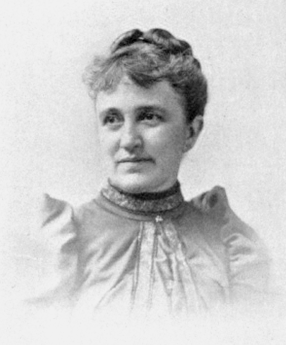
Mary Parker Woodworth was an American writer and speaker on educational and missionary topics. She was the first New Hampshire graduate from Vassar College, and the first woman member of the Concord, New Hampshire Board of Education.

Adelaide Cilley Waldron was an American author and editor of the long nineteenth century. She wrote poems, hymns, sonnets, children's stories, essays, and letters for newspapers, as well as articles for educational and historical journals. Farmington was published in 1904. Waldron was an accomplished musician and a clubwoman. She was associated with the Daughters of the American Revolution, Woman's Christian Temperance Union, New England Woman's Press Association, and other organizations.

Fanny E. Minot was an American public worker, social reformer, and clubwoman. She served as president the Woman's Relief Corps (W.R.C.) of Concord, New Hampshire, and also New Hampshire state president and national president of the same. She was also a member and regent of the Daughters of the American Revolution (D.A.R.). Minot was at the front in many other lines of public service, including charitable, educational, church and social work. She manifested a strong interest in all those movements of the 20th-century which brought women into prominence.

Lucy Nettie Fletcher was a British-born American nurse who died while on active duty in France during World War I.

Catherine Fiske was an American teacher and principal who founded a girls' boarding school, Miss Catherine Fiske's Young Ladies Seminary. Located in Keene, New Hampshire, it was in operation from 1814 until the 1840s. Presently, the seminary's building serves as President's House, Keene State College. Fiske was also a benefactor for the New Hampshire State Hospital.
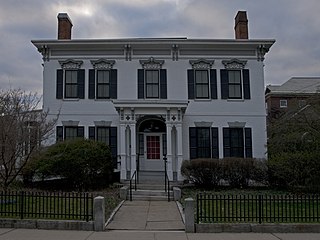
Miss Catherine Fiske's Young Ladies Seminary was a boarding and day school for young ladies, located in Keene, New Hampshire. Established in 1814, it achieved a national reputation. After the 1837 death of Catherine Fiske, the school's founder, the seminary continued to operate until the early 1840s. The property went through various changes but currently serves as the President's House at Keene State College.

Jane Grace Alexander was an American banker, the first woman banker in New Hampshire. Alexander was elected treasurer of the Security Savings Banks in Winchester, New Hampshire. She worked at the city's national bank for 52 years before retiring.
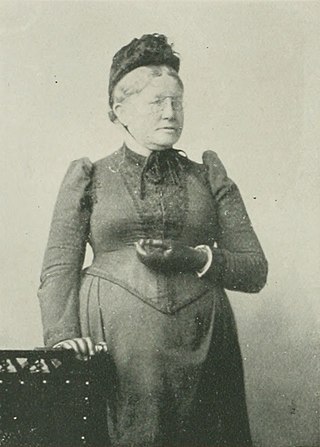
Julia Knowlton Dyer was an American philanthropist of the long nineteenth century. She was associated for over 40 years with nearly every large philanthropic work started in Boston. Her rare executive ability combined with an even temperament made her a natural leader of large bodies. Dyer was prominently connected with 24 associations, only one of which, the Castilian Club, was purely literary. She was president of the Soldiers' Home in Chelsea, Massachusetts, president and founder of the Woman's Charity Club, a member of the executive boards of the Home for Intemperate Women, the Helping Hand Association, and president of the local branch of the Woman's Christian Temperance Union (W.C.T.U.). For 26 years, she was a manager for the Home for Female Prisoners in Dedham, Massachusetts, and was a life member of The Bostonian Society. The Woman's Charity Club Hospital was started by Dyer, president of the Woman's Charity Club; originally located at 28 Chester Park, a few years later, a more commodious hospital was built on Boston's Parker Hill.




















